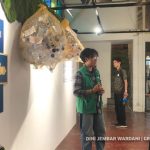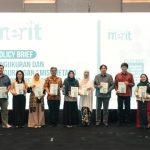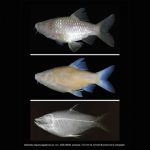Jakarta (Greeners) – Director General of Waste and Toxic Waste Management, Rosa Vivien Ratnawati, on Saturday (2/5) said that Indonesia is ready to lead Southeast Asia’s marine waste and micro plastic action plan with priorities programs implemented in the country.
“There was monitoring and plastic waste survey in the oceans using UNEP and NOAA guidance in 18 coastal areas in 18 cities or districts out of 25 priority cities or districts and will continue for next years,” said Ratnawati in a press statement adding that waste management in touristic sites including marine national parks, reduce and recycle plastic waste, and tackle plastic and micro plastic waste.
READ ALSO: Indonesia To Implement Less Waste Asian Games
Furthermore, Ratnawati said that Indonesia had developed legal and technical framework to implement extended producer responsibility, and to set up national action plan coordinated under maritime affairs coordinating ministry. In addition, Indonesia aimed to reduce 30 percent from its sources and to manage 70 percent of waste by 2025 based on presidential regulation issued in 2017.
“Indonesia is also adjusting with international commitment with marine waste reducing target for 70 percent in 2025,” she said.
UN Environment director executive, Erik Solheim, encourages people to reduce plastic use and replace it with naturally degradable materials, and design recyclable plastic packages to reduce plastic waste pollution.
“Plastic waste in the oceans and mountains, especially micro plastic, is beginning to disrupt oceans biota and birds digestive mechanism. Hence, UN Environment encourages campaign to reduce plastic waste to all people,” said Solheim.
READ ALSO: Indonesia Encourages Reduce Plastic Waste to Southeast Asia Nations
Meanwhile, Novrizal Tahar, director of waste management at the ministry, said they will follow up regional action plans on waste management, due on October 2018, encourage massive people’s movement to reduce plastic waste and limit waste volume in regions.
“Several cities, including Banjarmasin, Balikpapan and Badung of Bali [province], have implemented no single use plastic waste. We will encourage local initiatives, through Jakstrada (Regional Strategic Policies),” said Tahar on Sunday (3/6).
Furthermore, he said that Brunei had announced no more single use plastic bag in the country starting on January 1, 2019 followed by Malaysian government.
“The key to micro plastic is land based plastic waste management. As long as there’s leakage, then micro plastic will happen. Hence, how to improve land based waste management, upstream and downstream, supported by producers, public, and governments, from upstream to downstream,” he said.
Reports by Dewi Purningsih



















































